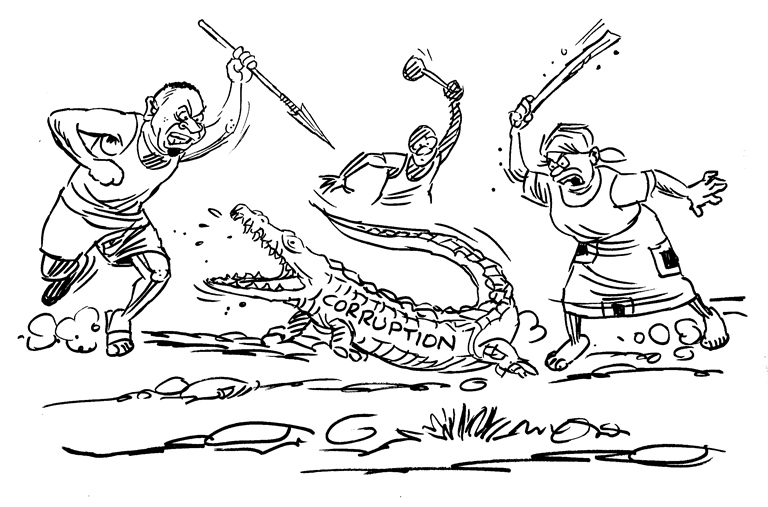More money to steal?
As the House passed the revised K2.852 trillion 2022/23 National Budget a fortnight, my interest was drawn to how the national resource envelope will be protected from the hungry vultures that have their fangs on the money. The new budget is K12 billion more than what Parliament passed in March.
Ordinarily, this should be good news as it means the country will have more resources to spend on its social and economic development activities. But, sadly, this is unlikely to be the case. More money simply means that thieves also have more money at their disposal to steal. And here is why.
It is on authority that a third of the national budget is washed down the river. Not by cyclones like those that struck last year, but by the many wolves in sheep’s skin who sit sentry to the public resources while salivating over it.
It is also a well known that a third of the drugs budget or the drugs meant for use in public hospitals are stolen.
Last year, the United Nations Resident Coordinator Rudolf Schwenk said Malawi lost over half a billion United States dollars to corruption in 2019 alone. Further, Schwenk said an assessment by the country’s Financial Intelligence Agency (FIA) revealed that Malawi lost approximately $7.4 million (over K8 billion to illegal foreign exchange externalisation in over 11 months.
The UN official spoke during the opening of a two-day National Anti-Corruption Dialogue Conference in Lilongwe. Schwenk called for concerted efforts to deal with corruption because, he said, it has a particularly strong impact on the most vulnerable when it comes to human rights. And he cannot be further from truth when he says the vice weakens the number of resources available to deliver core human rights through essential services such as effective healthcare, quality education, accessible justice and an accountable and responsive democracy.
But, to a large extent, the purported fight against corruption in the country is cosmetic. Kenyan motivational speaker Professor Patrick Lock Otieno Lumumba is spot on when he says African governments deliberately put hyenas to guard over goats and so it is ironic that when the goats are consumed they wonder why.
That is why the controversial arrest, early last week, of the ACB director general Martha Chizuma, to a large extent, proves that the purported fight against corruption in the country is cosmetic. To cut a long story short, this is because Chizuma is the epitome of the fight against corruption in the country.
I will not pre-empt the outcome of the work of the commission of inquiry President Lazarus Chakwera has appointed to probe events leading and ancillary to Chizuma’s arrest. Let it do its job without fear or favour.
Corruption is evil and anyone found practising the vice should be reported to police to face the law. Better still, lightning should strike them dead so that they don’t waste courts’ time and money hearing their cases when they are arrested.
When government allocates more money to ministries, departments and agencies, without ring-fencing it, there it invites hyenas to watch over its goats.
Political will is what has been deficient in our governance system. ACB and other governance institutions may be well resourced to fight corruption, but what we see is that through its machinations, the same government is pulling the carpet from under the feet of the lead commanders in the war against the vice. This is like giving with one hand and taking away with the other. It amounts to massaging corruption.
As they say the proof of the pudding is in the eating. And so like all other budgets before it the real worth and success, or effectiveness of the increased 2022/23 fiscal plan will not be determined by the amounts of allocations to each sector but how much political will the Tonse Alliance administration will invest in each allocation.



